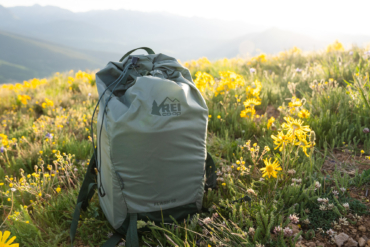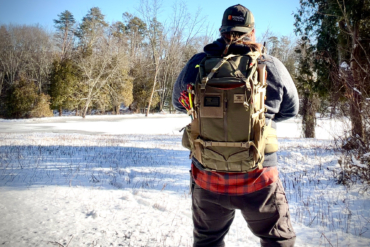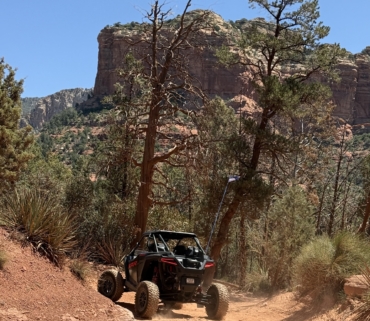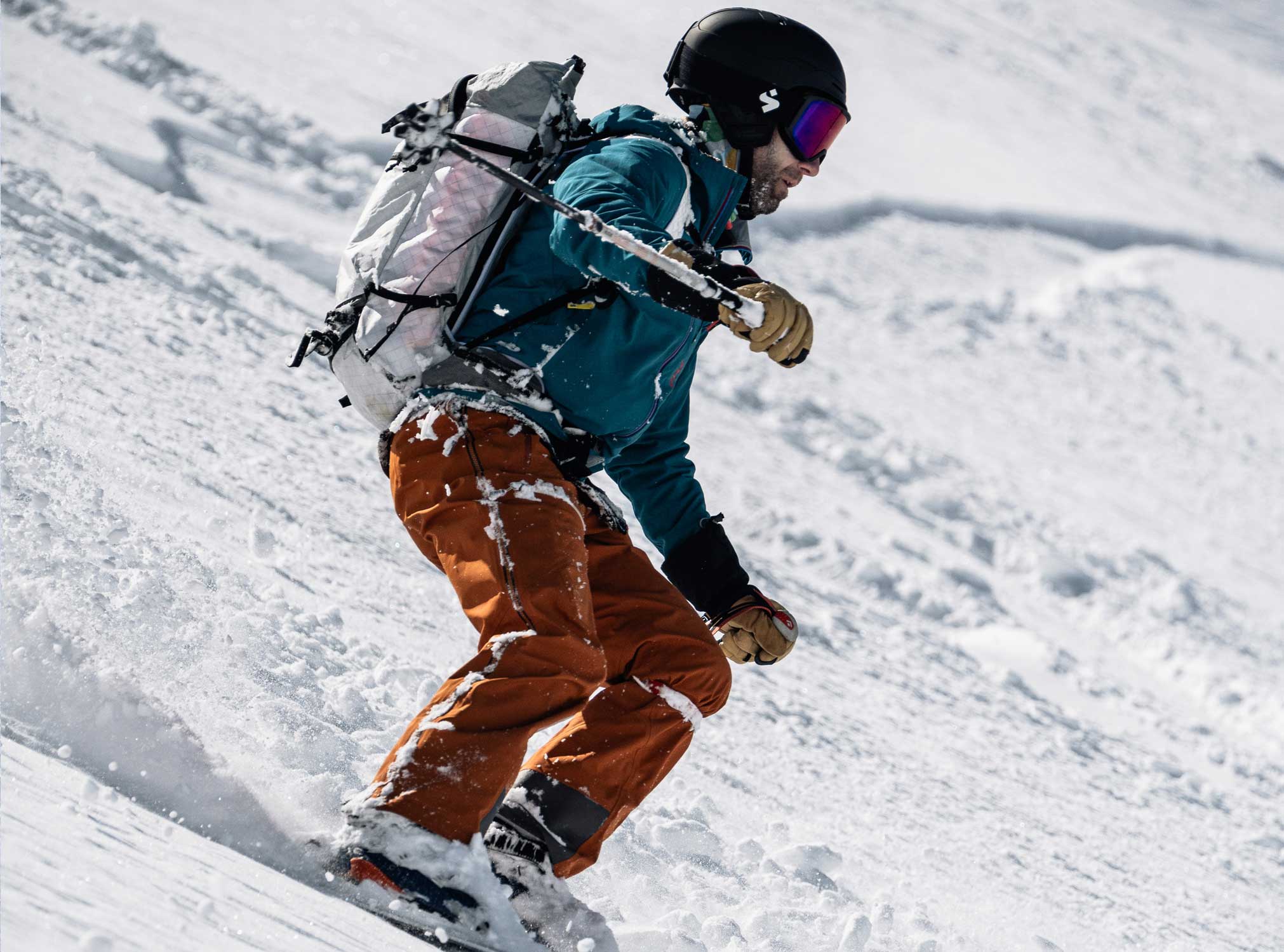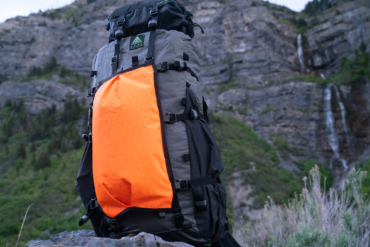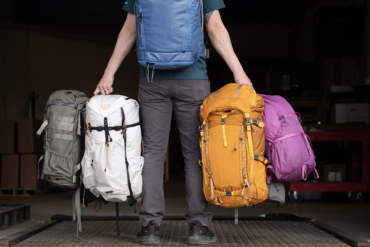
In today’s New York Times (Nov. 23, 2006), Stephen Regenold—aka The Gear Junkie—wrote about so-called ‘frontpacks,’ which are packs with mesh pouches, zipper pockets, and compartments positioned up front on hip belts and over the chest. Moving weight forward on the body, the companies claim, acts to counterbalance the heavy load on back.

The original story in New York Times, which ran in the Thursdays Styles section, is available on nytimes.com. I also wrote a full Gear Junkie column on frontpacks for my syndicate newspapers . . .
THE GEAR JUNKIE, WEEK OF DECEMBER 4, 2006 . . . IN A STORY LAST MONTH for New York Times, I wrote about the trend of “frontpacks,” which are packs with mesh pouches, zipper pockets, and compartments positioned up front on hip belts and over the chest. Companies like Salomon, Aarn Designs and syncpack claim moving weight forward on the body acts to counterbalance the heavy load on back.
To test the counterbalance theory, I recruited Kurt Wedberg, a professional guide and owner of Sierra Mountaineering International, to try out five new frontpack models. Wedberg hiked the hills and mountains around his home in Bishop, Calif., carrying up to 50 pounds of weight on his wilderness-weary shoulders.
Here are Wedberg’s thoughts on five frontpack models:
1. syncpack ($179, www.thesyncpack.com; pictured above)
The syncpack mounts to any backpack via a lightweight aluminum frame. Its patent-pending frame functionality—which moves dynamically with the wearer and is touted as transferring weight of the front-carried load to the waist belt—was impressive, according to Wedberg. He said it gave the illusion that he was carrying a lighter load. However, the chest-mounted syncpack did block his view. “For trails it’s fine, but I would not hike off trail in rough terrain with this pack.”
2. Aarn Designs (Natural Balance model, $270, www.aarnpacks.com; pictured below)
This pack’s dual front-side pouches on the shoulder straps counterbalanced weight well, Wedberg said. “The large front pockets provided enough weight to compensate for the large compartment on back.” Wedberg said built-in separators in the main body of the pack were superfluous. “I cut them out with a knife to let the load distribute inside more naturally.”

3. Salomon (Raid Revo 20 S-Lab, $130, www.salomonsports.com)
Easy access to gear is the aim of the upfront accouterments Salomon built on this daypack. Right- and left-hand zippered pockets on the hip belt serve as holsters for energy gel, electrolyte tabs, sunscreen or bars. Vertical mesh pouches on each shoulder strap counterbalance some weight when loaded with full water bottles. Fit on Wedberg’s body was not perfect, as his torso was too long, and the pack comes only in one size.
4. Ultimate Direction (Zoom model, $89.95, www.ultimatedirection.com)
Like the Salomon pack, the Zoom has four front-side pockets—two on the hip belt; two on the shoulder straps—that provide access to gear or trail food. Very little weight compensation was noticeable with this model. Regardless, Wedberg said the pack was “very comfortable, very versatile” and perfect for day-long treks or climbing excursions.
5. LuxuryLite (Front Pack model, $35, www.luxurylite.com)
Wedberg tested the Front Pack with a LuxuryLite external-frame backpack as well as with his own internal-frame expedition pack. He noticed little weight transfer with the external-frame model. But used in tandem with his other pack it did the job of transferring some weight off his shoulders. Its large size obscured the trail ahead more than any model, Wedberg said. But at $35, he said this is the model to pick for casual hikers or anyone interested in trying out the frontpack concept.
(Stephen Regenold writes The Gear Junkie column for eight U.S. newspapers)

